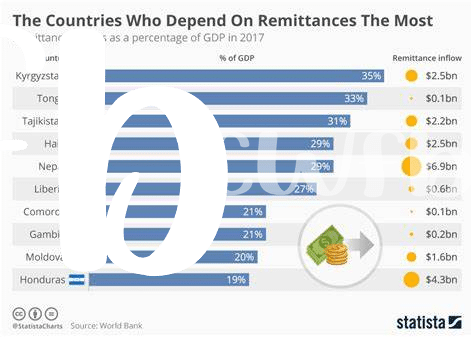Bitcoin’s Role in Cross-border Transactions 💰

Bitcoin serves as a digital bridge connecting individuals across borders, revolutionizing the way money is transferred globally. Its decentralized nature allows for direct peer-to-peer transactions without the need for intermediaries, reducing costs and processing times. By leveraging blockchain technology, Bitcoin transactions are secure and transparent, providing users with a level of trust and efficiency previously unseen in traditional cross-border transfers. The borderless and permissionless nature of Bitcoin further enhances its role in facilitating seamless international remittances, empowering individuals to send and receive funds swiftly and securely. This digital currency transcends geographical barriers, offering a truly transformative solution for cross-border transactions in today’s interconnected world.
Advantages of Bitcoin for International Remittances 💡
Bitcoin’s global accessibility and decentralized nature allow for swift and cost-effective international remittances. With traditional methods, such as banks or money transfer services, high fees and long processing times are common hurdles, especially for those in underserved regions. Bitcoin transcends these constraints, enabling near-instant transactions at lower costs. Additionally, its borderless nature means recipients can access funds quickly without geographical limitations. By leveraging Bitcoin for cross-border transfers, individuals and businesses alike can experience seamless and efficient remittance processes that are revolutionizing the way money moves across the world.
Challenges Faced in Securing Bitcoin Transfers 🔒

Securing Bitcoin transfers poses unique challenges due to the decentralized nature of the cryptocurrency. One key issue is the vulnerability to cyberattacks, as hackers target both individual wallets and larger exchanges. Additionally, the irreversibility of Bitcoin transactions means that once a transfer is made, it cannot be easily undone in case of errors or fraud. Ensuring the privacy and security of these transfers requires robust encryption methods and adherence to best practices in cybersecurity protocols. Balancing convenience and security remains a critical concern in the realm of Bitcoin remittances.
Implementing Solutions for Secure Remittances 🌐

Bitcoin offers a promising solution for secure international remittances, addressing the inefficiencies and high costs associated with traditional methods. By leveraging the decentralized nature of blockchain technology, transactions can be conducted swiftly and transparently across borders, reducing the need for intermediaries and streamlining the process. Implementing secure solutions for remittances involves incorporating robust encryption techniques, secure storage practices, and adherence to best cybersecurity practices. Embracing innovative technologies such as multi-signature wallets and smart contracts can further enhance the security and reliability of Bitcoin transfers for international remittances.
Link to more insights on using Bitcoin for international remittances in Ethiopia: using bitcoin for international remittances in Ethiopia
Regulatory Aspects Impacting Bitcoin Remittances 📜
The regulations surrounding Bitcoin remittances have a significant impact on the efficiency and security of cross-border transactions. Governments and regulatory bodies play a crucial role in shaping the framework within which Bitcoin remittances operate, ensuring compliance with laws and protecting consumers. Factors such as Know Your Customer (KYC) requirements, anti-money laundering (AML) policies, and taxation regulations can influence how individuals and businesses engage in Bitcoin transfers for international remittances. Striking a balance between fostering innovation and safeguarding against illicit activities remains a key challenge for regulators in the evolving landscape of digital currencies. As the regulatory environment continues to evolve, staying informed and adapting to new requirements will be essential for facilitating secure and compliant Bitcoin remittance transactions.
Future of Bitcoin in the Global Remittance Market 🚀

In an increasingly digital world, the potential of Bitcoin in the global remittance market is promising. As more individuals seek efficient and cost-effective ways to transfer funds across borders, Bitcoin offers a decentralized solution that bypasses traditional financial institutions. With its secure and transparent blockchain technology, Bitcoin has the capacity to revolutionize international remittances. As adoption grows and regulatory frameworks evolve, Bitcoin is likely to play a significant role in shaping the future of cross-border transactions. To explore how Bitcoin is being used for international remittances, check out this resource on using Bitcoin for international remittances in Finland and discover the impact it’s making in Eswatini.
